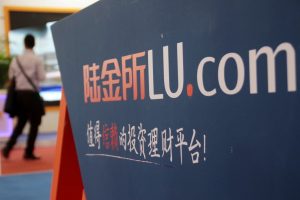After having to postpone its original IPO plans in Hong Kong due to changes in financial regulations, and pivots in operations, Chinese lending and wealth management firm Lufax is now opting to list on the New York Stock Exchange. Backed by financial services conglomerate Ping An Group, the Shanghai-based start up is said to be filed with the SEC to list under the ticket “LU.”
Lufax primarily offers business and personal loans, as well as wealth management services. It is said that Lufax will seek up to $2.36 billion in its IPO. The company has further shared its details on pricing intentions where 175,000,000 American depository shares (ADS) will be issued and priced between $11.50 and $13.50 per share. Lufax aims to achieve a valuation of $30 billion from its IPO and intends to funnel its funds into developing new products, marketing, tech infrastructure, and future acquisitions.
Today, Lufax is China’s third and second biggest non-traditional provider of online wealth management and retail credit, respectively according to its listing prospectus. This is the second time the company has attempted to go public after having to hold off on its original IPO plans in Hong Kong. Lufax first sought an IPO in 2018 at $60 billion valuation in Hong Kong. However, at the time, national changes in financial regulations with new restrictions on P2P lending and wealth management in China intervened. With regulatory changes put swiftly in place, investors were poised to express concern over the certainty of the Lufax’s future. As a result, the fintech overhauled its initial trajectory and instead launched wealth management, moving away from P2P lending.
Following the revamp to meet regulations, Lufax found itself better placed for an IPO reporting a net profit for the six-month period ending June 30 of over $1 billion on total income of $3.64 billion. Despite geopolitical tensions between the U.S. and China, Chinese technology companies have been patiently waiting to seize the opportunity of a stock rebound in markets to go public on Wall Street.
However, the U.S. has made it clear that it will ban Chinese firms listed in the region if they don’t comply with national accounting standards. Under this mandate, companies will need to hand over their audits to regulators which would put Chinese firms such as Lufax in a precarious position given that Chinese law bans auditing firms from sharing accounting information with foreign regulators.
























